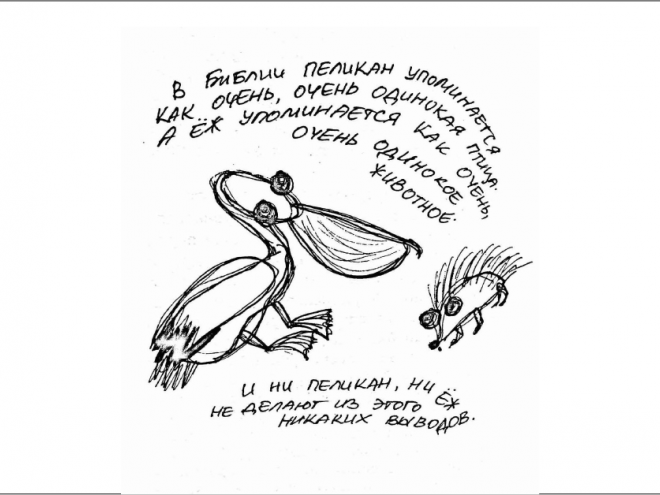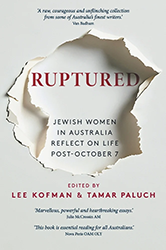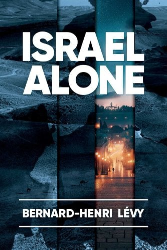
Image by Pierre-Yves Beaudouin
Maria Tumarkin talks about her new book Axiomatic, an investigation of trauma and how people cope within societal systems. She discusses the book’s journey to fruition, the myriad ways we see trauma talked about, and the struggle to represent individual’s stories within the work.
Dalia Wolfson: From the very first pages, we understand that you are dealing with a mountain of materials: transcripts, statistics, creative writing assignments, email threads, archival finds, academic essays. What was the timeline of collecting these stories, sorting sources, and then planning them out into a book, structurally speaking? What did you leave out?
Maria Tumarkin: Timeline! Axiomatic took eight and a half years to write. The first chapter went through twenty-six drafts, the last chapter fell out fully formed. I probably spent a total of a year, at least, pursuing leads that went nowhere. I probably spent two years overall actively doing anything but writing this book. I suspect that, at one point or another, most people in my book thought it wasn’t ever going to happen. Some forgot they’d even spoken to me. I broke two contracts with two publishers, repaid one advance, and wasn’t able to repay the other. People’s lives that I was writing about kept changing, and those changes were significant and needed to be in the book, but books are not built to keep up that way. There was no natural place I could see for a full stop.
At one point, I had to ditch twenty thousand words I wrote about Vera Wasowski, one of the book’s main women. I was taking way too long and Vera gave up on me and published her own memoir.
Vera’s memoir beat my book by three years. My chapter about her was now meaningless. This is a cautionary tale about taking forever! I tried to make myself walk away, tail between my legs, but inexplicably I couldn’t. I ended up writing about Vera in a different way, and the disappearance of a chapter in front of my eyes turned out to be a blessing in disguise. So, perhaps, this is a cautionary tale about how books take as long as they take and it’s okay.
DW: How did you decide to incorporate your personal story into the book?
MT: I was very clear at the start that I didn’t want to turn my book into a memoir or make myself a bigger presence in it so as to make confronting material more palatable to my readers. ‘Palatable’, ‘digestible’, ‘relatable’ — I am no fan of this trifecta of omnipresent adjectives. I have a strong presence in the book,not as someone telling you a story of their life, but rather as someone thinking and feeling hard on the page. My previous book, Otherland, was primarily a memoir; Axiomatic is a fundamentally different project. It’s not about me.
DW: Your narration shifts from academic citation to reported speech to personal reflection. How did you arrive at the narration style for this book? What authors have informed your voice?
MT: I like nonfiction written by writers who are, first and foremost, poets — Anne Carson, Eliot Weinberger, Maggie Nelson, Joseph Brodsky. Michael Hofmann is my favorite critic and he is a poet too. I mean, they are all scholars and everyone on this modest (in size but not in stature!) list, apart from Nelson, is a hugely accomplished literary translator. So I am influenced by people who move between different languages and different literary modes but who have a dominant sensibility that is poetic. Poets think faster, make connections faster. I am drawn to the speed of thought in nonfiction. I feel like there are so many swollen, bloated bits of nonfiction out there — books that should have been essays, essays that should have been two paragraphs. But also for poets, each word counts in a way that perhaps it doesn’t for fiction and nonfiction writers. If I try to emulate anything other writers do, it’s that commitment to every word uttered, every word put on record. Inevitably I fail, but this striving is there, under the skin of Axiomatic.
DW: I was struck by several metaphor families. Firstly: the body as a container/vessel of trauma — moments of feeling trauma out/inside of skin, with/out skin, body as blimp or balloon, etc. Secondly, the ongoing search for a fixed metaphor for the role of time in trauma (sometimes an engine, sometimes a vortex, etc.) What were the challenges of introducing metaphors to explain the complex dynamics of trauma?
MT: Thank you for noticing these attempts to find my own language with which to speak about trauma. I feel that the public language of trauma is way too over-determined both by the clinical language of PTSD and trauma theory. As a writer, it is my job to run as fast as I can from dead or deadening language towards something that feels alive and illuminating, more tentative than categorical, something that doesn’t seek the air of authority. Metaphors, perhaps paradoxically, allow a certain kind of necessary nakedness to come back into the way trauma is spoken about. They are also my way of not using ready-made language.
DW: Your book deals with immensely heavy topics like suicide, child abuse, and drug addiction. But there are also light moments: “casserole period,” drinking red and white wine. What is the role of humour/laughter/‘friction’ in the process of recovery (or even in the face of retraumatization)?
MT: I don’t think of humour in my work as something that makes the medicine go down. I respect jokes way too much for that. I think humour is a way of dealing with feeling stuck — stuck in too much reverence, stuck in a particular way of thinking about something, whatever that might be. It is a little like opening a window in a room that feels a little dusty or a little too cocooned from chaos and chance that the outside world invariably brings.
You open the window and your papers fly off the desk, things are set in motion, the air feels different, all sorts of sounds invade the quiet of the room, that’s what humour does, it’s invaluable.
DW: Since the book was published, were there any significant reactions from your subjects? I’m especially curious about Vera and your best friend.
MT: Those women I write about at length in Axiomatic knew what I was doing, most of them read their sections and had the right to veto any bits that felt untrue or dangerous to them. I believe in showing people what I write about them when I can. Sometimes it’s not possible or somehow doesn’t seem appropriate, but for the most part I try to be transparent. I don’t think there were surprises, but I did do an event with Vanda, Sophie (Vera’s friend) and Lisa where — the chair, who is a dear friend of mine, asked my co-panelists what it was like to be written about by me. And Lisa said these words that put the fear of God into me. She said, “The person in the book is not me.” She read the book, and saw someone other than herself in my words, and it was fine, she got it. She understood that looking at yourself through the eyes of another person, a writer, was never going to be like looking in a mirror. But to me it was a genuine jolt. I was so terrified of inadvertently misrepresenting one of the people I was writing about, of being blind to some important part of their history, of causing injury, I was so obsessed with transparency and ongoing consent, I didn’t think to ask a simple question, ‘Do you recognise yourself in my words?’
As to Alexandra, she is studying the English language and her brain is the size of an Olympic stadium. She is getting better and better, but she did have to put some of ‘her chapter’ through the google translate, with predictably farcical results. Vera liked the Polish part of her chapter the most, which pleases me to no end.
DW: In Axiomatic, the cyclical, systemic problems at play are products of a particular Australian ecosystem, even as your explorations of the inner workings of trauma feel profoundly cross-cultural. What do you think ‘translates’ easily for non-Australian readers, what might not?
MT: I wonder. Perhaps you can tell me. The specifics are thoroughly Australian — the names of institutions, their particular configurations, constraints on teachers or lawyers — but it seems to me that the stakes are totally intelligible to non-Australian readers. A school in the middle of a crisis, or the way in which each society produces and reproduces underclasses of people that have always already been abandoned by that society’s institutions and safety nets. I was concerned that my American readers might be put off by the specifically Australian references, but it seems not to have been that much of a barrier. Survival, aftermath, love, loss, fortitude, kinship — I think these themes travel well across cultures and contexts.



